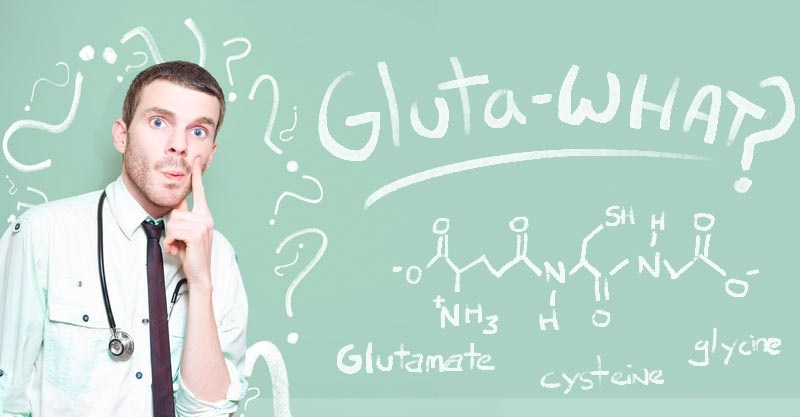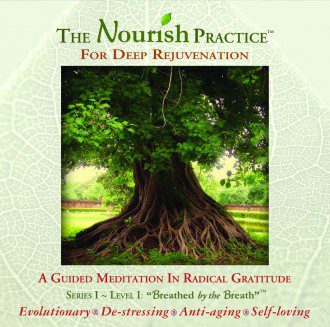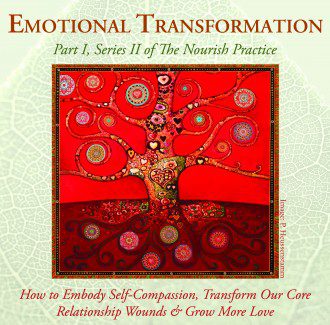
November 14th, 2016
Contributing writer for Wake Up World
As a Chinese medicine physician for decades, and in my years as a writer for Wake Up World, I have never produced an article about a supplement — until now. This is how highly I regard glutathione.
Glutathione is our body’s number one antioxidant. Antioxidants help to fight off viruses and infection and immobilize toxins, thus reducing our body’s stress load. Glutathione is present in all our cells, and produced abundantly in the liver. It boosts the immune system, is an anti-aging agent, counteracts all manner of toxins, and improves overall functioning both physical and mental.
I especially recommend considering glutathione supplementation if you get sick often, if you are detoxing, if your immune system is weak, if you’re under a lot of stress, if your diet is poor, if you are taking chemotherapy, or if you have low glutathione levels. Please check with your doctor to see if it’s safe for you, especially if you are taking medication.
Many chronic diseases are associated with glutathione deficiency; the most common being AIDS (HIV), Alzheimer’s disease, Arthritis, Asthma, Autism, Cancer, Chronic infection, Chronic Fatigue Syndrome, Diabetes, Hepatitis, Kidney Problems, and Parkinson’s disease.
Dr. Mark Hyman. M.D., reminds us that our body’s glutathione production has not kept pace with the onslaught of tens of thousands of industrial chemicals we’ve introduced to the environment, chemicals that find their way into our bodies and wreak havoc. Dr. Hyman says that many of us lack the necessary genes needed to produce the enzyme that recycles glutathione (there is a test for this). So, some are genetically ill-equipped from the get-go, as well as deficient, due to our evolutionary low-level glutathione production relative to our modern toxic environmental load.
Not only are we behind the times genetically (or, better, in industrial overshoot), but with increased age, our bodies produce less glutathione. Endogenous (i.e., produced inside our bodies) glutathione production also drops due to negative stress, illness, and trauma. So, supplementation during such times can be very helpful.
Personal Experience
I came across glutathione a couple years ago, when several recommendations for this supplement converged on me simultaneously. The most enticing was a story from a friend about her naturopath who tried the supplement in hopes of lessening his chemical sensitivities — it worked.
I’ve been sensitive to a plethora of man-made chemicals and fragrances for some time; my glands at my neck swell and I can get dizzy and nauseous from spending too much time in Home Depot, and Walmart I try to avoid altogether (for many reasons).
Two days after first taking glutathione and its co-factors I noticed several changes: 1) I was more tolerant to cold weather 2) my skin became smoother and felt better 3) I needed less sleep and 4) I had more energy. Longer-term changes have included getting sick less frequently, less gland swelling, and feeling better overall.
I did plenty of research, however, before taking the stuff. I know from experience that a multi-pronged approach is usually best when tackling any health issue, so I decided to boost my glutathione levels in several ways. Here’s how I did it:
1) Whey powder:
The best food to maximize glutathione levels, whey contains an abundant amount of cysteine, the scarcest of the three amino acids that comprise glutathione. Note, whey is an animal product, so it’s not suitable for vegans. You want to get minimally processed, non-denatured, biologically-active whey, and organic if possible. Amazon has several brands. Dr. Mercola recommends the following:
- The whey comes from grass-fed cows that are not treated with pesticides or hormones.
- Cold processed, since heat destroys whey’s fragile molecular structure.
- Whey protein concentrate, not protein isolates.
- Sweetened naturally, not artificially, and low in carbohydrates.
- Highly digestible — look for medium chain fatty acids (MCTs), not long chain fatty acids.
2) NAC (N-acetyl cysteine):
This is a form of cysteine that the body can utilize to make glutathione. Cysteine is the “rate-limiting” amino acid in the production of glutathione, meaning that it is not abundantly found in foods.
NAC has an affinity for the lungs and breaks up mucous (“mucolytic”), so it’s also helpful for sinus congestion, phlegm, allergies, and lung infection with phlegm/mucous discharge. Dr. Mercola recommends not taking it if you have mercury amalgam fillings, because NAC could interfere with mercury detoxification.
In one patient of mine, NAC dried out her sinuses some and made her asthma slightly worse. Others with asthma, however, have benefitted from taking NAC. So if you have asthma, proceed with caution, as NAC seems best when excess phlegm/mucous is present. Again, do your own research and check with your doctor if you are concerned about NAC supplementation.
3) Glutathione supplement:
I have taken L-glutathione (reduced glutathione), S-acetyl glutathione, and liposomal glutathione. I swish the L-glutathione powder (not the others, which are swallowed) in my mouth with water because it is reportedly better absorbed through the mucosal membranes of the mouth.
The other two forms of glutathione (S-acetyl and liposomal) are innovative new ways to deliver glutathione to cells because the reduced form is not as readily absorbed intact through the digestive system (thus the swishing in the mouth of L-glutathione).
Note, many articles on glutathione state that glutathione is not well absorbed by oral ingestion. While this is true for swallowing of L-glutathione, these authors (including Dr. Hyman) seem not to know about the mucosal absorption factor of L-glutathione, nor the availability of the liposomal and S-acetyl versions. While L-glutathione is less expensive than s-acetyl and liposomal glutathione, for optimal absorption I swish it around in my mouth with water, which many people don’t want to do.
So, in sum, twice a day, on an empty-ish stomach, I take a couple spoonfuls of whey powder (I love the taste and just spoon it right into my mouth and let it dissolve, but most people take it with water) along with 1,000 mg of NAC and about 500 mg of L-glutathione. I also take S-acetyl glutathione when I don’t have time for the oral swishing ritual of L-glutathione.
Glutathione also has synergistic activity with vitamin C, E, and CoQ10 (all antioxidants). Glutathione is recycled by Vitamins C and E and both these vitamins, along with CoQ10, are in turn regenerated by glutathione, causing them to remain active for longer in our bodies. To boot, CoQ10 apparently helps glutathione production. Sometimes, therefore, I also take these supplements with the whey, NAC, and glutathione.
Other ways to increase glutathione level include:
1) Exercise: exercise boosts glutathione levels
2) Consuming sulfur-rich foods: The main ones are garlic, onions and the cruciferous vegetables (broccoli, kale, collard greens, cabbage, cauliflower, and watercress, for example)
3) Supplementing with milk thistle, alpha lipoic acid, selenium, vitamins C, E, and vitamins B6 and B12.
Side Effects/Contraindications
Since glutathione is made in our bodies, there is not a great risk, if any, with taking it. WebMD indicates they have no known interactions for glutathione, but do recommend that pregnant and nursing women not take glutathione, as a precaution. See more here. For the record, nobody to whom I have recommended glutathione has had adverse reactions.
Recently I noticed that Dr. Mercola says taking glutathione long-term can make us dependent on it, and as a result, endogenous production of it decreases. I have not been able to verify this assertion, and to my knowledge, it has not been mentioned by Dr. Hyman.
I could go on and on about glutathione, but others already have. So, I won’t, save to say that I think everyone on the planet should consider glutathione supplementation, as long as it’s not contraindicated for you. For all the potential benefit, my experience is that it’s worth a try. You might not notice results right away, as I did, so give it some weeks to a month.
As with all supplements, first try a small amount to make sure you have no adverse reactions. I hope you find this supplement as helpful as I and many others have.
Please comment below if you have questions or experiences to share, or you can join the conversation on Facebook.
Please note: This article is not intended to provide medical advice, diagnosis or treatment.
For more on glutathione:
- http://www.naturafoundation.co.uk/monografie/Glutathione_reduced_glutathione.html
- http://glutathione.wellwise.org/glutathione-gsh
- http://drhyman.com/blog/2010/05/19/glutathione-the-mother-of-all-antioxidants/
- http://www.clinicaleducation.org/resources/reviews/oral-glutathione-equivalent-to-iv-therapy/ – comment-19095
- https://en.wikipedia.org/wiki/Glutathione
- http://articles.mercola.com/sites/articles/archive/2010/04/10/can-you-use-food-to-increase-glutathione-instead-of-supplements.aspx – !
The Nourish Practice
Jack Adam Weber’s “The Nourish Practice” is an easy, guided meditation-Qi Gong practice in radical gratitude and self-love. It is an Earth-based, body-centered practice — at once physiological and mythological — that is deeply relaxing and replenishing, especially for modern-day burn-out syndrome, and requires little physical effort. “The Nourish Practice” resets your nervous system and fosters a rich inner life.
You can purchase The Nourish Practice as a CD or Digital Download here.
PLUS: The first installment in Jack Adam Weber’s new “Emotional Transformation” series, entitled “Healing from Heartbreak”, is available now!
Recommended reading by Jack Adam Weber:
- The Modern Shaman: Fierce Love at the Frontier of Madness
- When We Love an Addict – Courage and the Limits of Compassion
- Arrogance in Relationships: How to Deal With and Heal It
- 11 Reasons Why Hippies (Not Psychos) Should Rule the World
- ReVOLUTION: When Enough is Enough
- Sex – Truth and Dare, Pleasure and Purpose
- Yin Yang — Ancient Wisdom for Personal and Planetary Transformation
- Heartbreak – Loving Ourselves Through Difficult Times
- Sacred Space – What Is It and Why Do We Need It?
About the author:
 Jack Adam Weber, L.Ac. is a Chinese medicine physician, author, celebrated poet, organic farmer, and activist for body-centered spirituality. He is also the creator of The Nourish Practice, an Earth-based rejuvenation meditation. Weber is available by phone for medical consultations and life-coaching.
Jack Adam Weber, L.Ac. is a Chinese medicine physician, author, celebrated poet, organic farmer, and activist for body-centered spirituality. He is also the creator of The Nourish Practice, an Earth-based rejuvenation meditation. Weber is available by phone for medical consultations and life-coaching.
You can connect with Jack at:
- Website: JackAdamWeber.com
- Facebook: Facebook.com/JackAdamWeber
- Twitter: Twitter.com/JackAdamWeber
- Email: [email protected]

If you've ever found value in our articles, we'd greatly appreciate your support by purchasing Mindful Meditation Techniques for Kids - A Practical Guide for Adults to Empower Kids with the Gift of Inner Peace and Resilience for Life.
In the spirit of mindfulness, we encourage you to choose the paperback version. Delve into its pages away from screen glare and notifications, allowing yourself to fully immerse in the transformative practices within. The physical book enriches the learning process and serves as a tangible commitment to mindfulness, easily shared among family and friends.
Over the past few years, Wake Up World has faced significant online censorship, impacting our financial ability to stay online. Instead of soliciting donations, we're exploring win-win solutions with our readers to remain financially viable. Moving into book publishing, we hope to secure ongoing funds to continue our mission. With over 8,500 articles published in the past 13 years, we are committed to keeping our content free and accessible to everyone, without resorting to a paywall.








